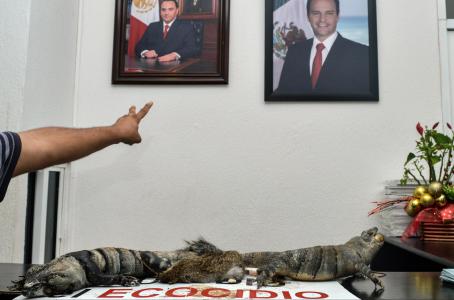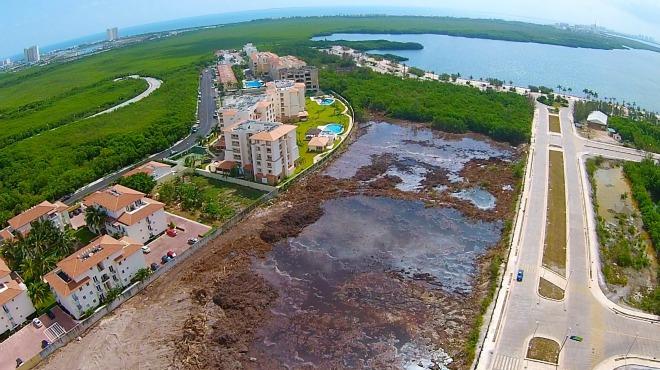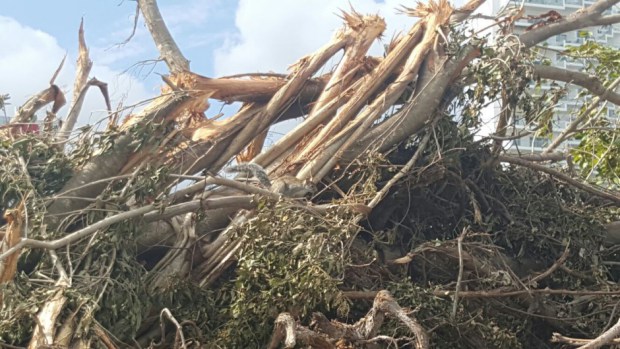Environmental activists could not stop the destruction of 143 acres of mangrove forest in order to build offices, apartments, shopping malls, and a huge church in the luxury resort of Cancún.
But the controversial project known as “Malecón Tajamar” (that is being promoted by the Mexican tourist board, known as Fonatur, and involves 23 private companies), was recently put on hold by local authorities, when civilian activists obtained an injunction .
Activists were unable to prevent the clearing of the area that began at 2 a.m. on Saturday Jan. 16 and finished around dawn. Bulldozers, cranes and dump trucks were protected by 140 state and municipal police officers sent to ensure that the protesters did not get in the way.
“It’s not only the mangroves, there were thousands of animals living there,” local activist Aracely Domínguez told VICE News. “Most of them are now dead, and the ones who managed to survive the attack are now without food, water or even a place to live.”
Domínguez said the animals include black spiny-tailed iguanas, leopard frogs, swamp crocodiles, snakes, several species of birds and also small mammals such as squirrels and coatis.

The Tajamar mangroves before they were destroyed. (Photo via Grupo Ecologista del Mayab)
Mexican law has explicitly prohibited the destruction of mangroves since 2010. The Tajamar project got around this restriction because it was originally approved five years before that, and then lay dormant.
When the project was dusted off again last year, activists responded with legal efforts to get it temporarily suspended.

Activists showed up at the mayor of Benito Juarez office, Paul Carrillo, with dead animals found inside the devastated lot. (Photo: Cuartoscuro)
These included an injunction promoted by 113 local children that was granted in September but then lifted after a judge ordered the kids to pay 20 million pesos (just over $1 million dollars) in compensation to the companies involved.
“The right of children to a healthy environment costs 20 million pesos,” Domínguez said.
The companies include Italian firm Bi & Di, a commercial developer that is looking to build a residential area of 3,600 homes, condominium towers, and a Catholic church that promises to have the tallest cross in Latin America in the area once covered by black, red and white mangroves.
Environmentalist frequently describe Cancún as a paradigmatic example of environmentally-destructive tourism. The explosion of the resort that began in the 1990s paid almost no attention to the natural context and destroyed many ecosystems including the mangroves that once lined the coast.
“The loss of mangroves is not and should never be trivial,” Greenpeace said in a statement released on Wednesday. The organization cited the importance of mangroves as breeding grounds for fish that are exploited commercially, as well as an effective way of breaking the destructive force of hurricanes.
Miguel Rivas, who heads the organization’s coastal campaigns, said that the Tajamar case is “emblematic” of the struggle to protect mangroves in Mexico.
“Mangroves are supposed to be protected by the law, that is why this is so relevant,” he said.
Now that the mangroves in Cancún have been destroyed, Rivas said that the next challenge is to try and ensure that the construction work does not start in order to give the area the chance to regenerate.
On Wednesday January 20th a Cancún judge granted a new suspension of construction until the authorities have moved all the remaining animals to a safe place.
Follow Alan Hernández on Twitter: @alanpasten





